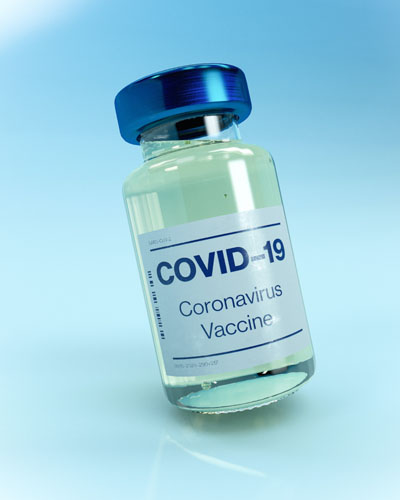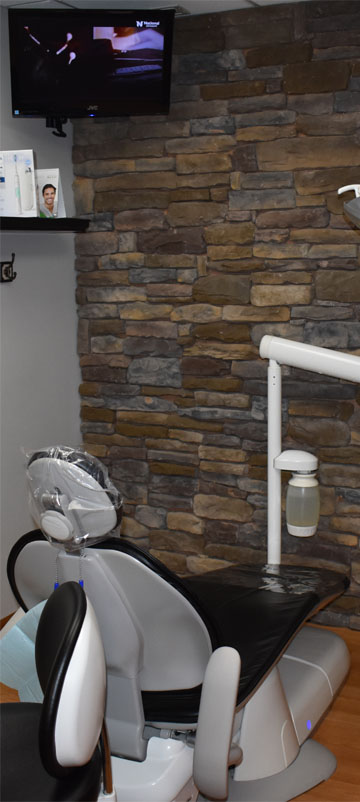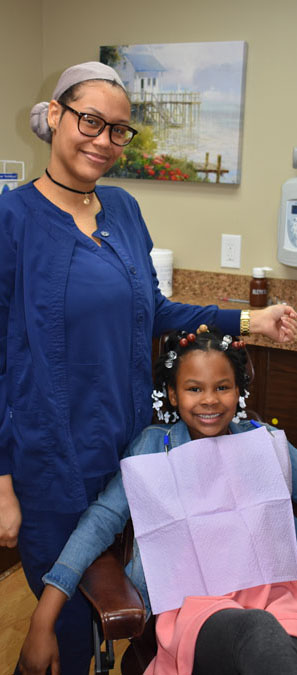 What do flossing, fluoride and the COVID-19 vaccine have in common? Preventing disease.
What do flossing, fluoride and the COVID-19 vaccine have in common? Preventing disease.
Moore Family Dental cares for your mouth because your oral health is essential to your overall health. Throughout the COVID-19 pandemic, we have been working to put your health and safety first by taking extra steps to prevent the spread of COVID-19 in the dental office.
Now, we have COVID-19 vaccines to add to the other tools we’ve all been using to fight the pandemic — like wearing masks, washing our hands and avoiding crowds. As vaccines become available to more people, you may have some questions about them. Here’s what the CDC (and your dentist!) want you to know about COVID-19 vaccines.
1. The Vaccines are Safe and Effective
As doctors of oral health, credible scientific information is important to us when recommending treatments for our patients. While these vaccines were developed in a shorter time frame than some other vaccines, it’s important to know that the science behind them was not rushed. These vaccines were tested by thousands of people to make sure they work and are safe for patients like you. The Food and Drug Administration reviewed the data from the tests and authorized them for emergency use after determining they are safe and effective for the public.
As an additional safety measure, the CDC has set up expanded safety monitoring systems like the V-Safe smartphone tool to monitor vaccinations in real time.
2. The Vaccine Won’t Make You Sick, But It Does Have Some Side Effects
None of the FDA-authorized COVID-19 vaccines contain the live virus, so there is no possible way they can give you COVID-19. They might, however, come with some side effects that make you feel uncomfortable for a short time.
Because vaccines teach your body how to recognize and fight off a COVID-19 infection, you might feel some of the symptoms you’d get if your body were fighting off the real virus, such as a fever, according to the CDC. While unpleasant, this is actually a sign the vaccine is working in your body.
3. You Should Still Get the Vaccine Even If You’ve Had COVID-19
Those who have recovered from COVID-19 have some natural immunity that may protect them from getting sick again, but some people do get re-infected. It’s unclear how long natural immunity to COVID-19 lasts and it can vary from person to person. The CDC recommends that people who’ve had COVID-19 still get the vaccine.
4. You Need to Get Both Doses
As of January 2021, the two vaccines available in the United States require two doses to be fully effective. Depending on which vaccine you get, the CDC recommends getting your second dose three or four weeks after the first to get the best protection against COVID-19.
5. Vaccine Supply Is Increasing
While the first available doses of the vaccine have been set aside for healthcare workers and other essential workers, more will be available soon. The CDC has given government agencies recommendations for the order in which different groups of people should be vaccinated, with the end goal of making the vaccines available to everyone. Your local government may also allow different groups, such as people over 65, to receive the vaccine sooner.
6. You’ll Still Need to Wear a Mask
Vaccines are just one layer of protection we can use in this pandemic, so it’s not time to get rid of your mask just yet. Here’s why: a vaccine will protect you from getting sick from the virus, but we don’t yet know if it will prevent you from spreading the virus to others. That’s why the CDC continues to recommend that people to wear masks, wash their hands frequently and avoid crowds even after getting vaccinated. Your dentist will also continue to require masks at your appointment.
7. You Can Get the Vaccine If You Are Planning to Get Pregnant
Whether you are planning to get pregnant soon or in the future, you should still get the vaccine when it is available to you. The CDC states there is no evidence that the antibodies created from COVID-19 vaccines will cause problems with a pregnancy. The CDC also says there is no evidence that fertility issues are a side effect of the COVID-19 vaccine, or any other vaccine.
Have more questions? Please contact us. You can also visit the CDC’s website for more information about COVID-19 vaccines and find contact information for your local health department.



